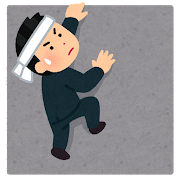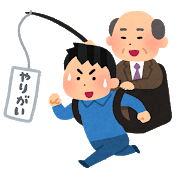Why do Japanese keep their side jobs secret? A wonder seen from foreigners
A foreigner asked such a simple question.
"Why do Japanese people work hard to keep their side jobs secret?"
The wonder of keeping side job secret

I answered,
"In general, many companies in Japan prohibit side businesses." ('Ω')
(There is no such law, but …)
So he said,
"It's against the freedom to choose a profession, and the government recommends it. Why is that? "
Certainly, the answer is reasonable ('ω')
With that in mind, why do Japanese want to keep your side business secret?
The interesting thing is, that even employees of companies that have not banned side jobs, said that
"I don't dare reveal that I'm doing a side job."
There seems to be some background to this.
It has been a so-called family contract that serves the company in Japan
Employment contracts in Japan (especially full-time employees) were a bit special, not limiting the scope of work and the place of work.
It is a so-called family contract that serves the company.
Once you join the company, instead of getting all the revenue and contributions, you need to recognize a family employment contract that takes care of everything (now unbelievable, referrals to marriage partners, family support, child care, etc.)
In the old days, all activities were carried out by inhouse members of the company.
For example, I heard that they spent holidays with people in the dormitory of the same company, attended athletic events of the company, and helped the company's boss house moving.
Nowadays, it has changed a lot (though youths of Gen Y and Gen Z may not believe it), but senior Japanese are still strongly aware the family contract.
An era in which activities other than the company are reported

For example, when taking a vacation, they need to report "when and where you go with your family"
If you are going to join PTA activities for school events, they should report,
"I will do some outside company activities."
People who have lived in these times are very hard to say,
"I'm doing a side job! I'm earning this kind of income!"
The upper management who judge it are also those who have lived in such an era, so it is even more difficult to report.
Overseas (especially Europe and the United States)companies case
Overseas (especially Europe and the United States)companies, which is recognized to be a job-based employment, usually clarify the scope of work and working location when concluding an employment contract.
Therefore, no matter what else you do, as long as you cleared your job scope, you are totally free.
Therefore, whether you work side-by-side or go on a trip with your family, it is a private space separate from the company side, and there is no obligation to report. (If there is, will be a big problem...)
There have been a time when Japanese-style employment system was strong.
However, now, the result the lowest productivity among developed countries, and there is also the shock of 6% of motivated employees in Japan (US research company),
It may be necessary to Japanese to change mindset a little bit..


